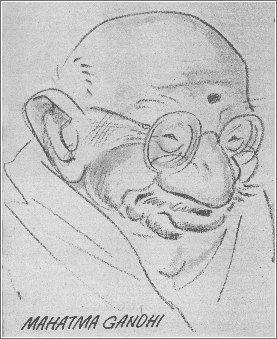Corona Virus: Some lessons from Bhagavad Gita
In Part 2 of this series of thoughts on the challenges posed by the pandemic to business leaders, we had noticed that the same are being met by:
- Reposing one’s faith in the basic goodness of human beings,
- Responding to fresh challenges in a creative and innovative manner,
- Adopting a sunnier disposition,
- Preparing for contingencies in advance, and
- Reconfiguring operations with due respect to nature and mother earth.
One no longer has the luxury of treating these traits as being theoretical constructs. Leadership is always context-specific and top managements need to evaluate the seniors on the traits listed here. These are the transformative professionals in the organization who need to be brought into critical roles without delay.
Much like a befuddled Arjuna twiddling his thumbs at the beginning of Bhagavad Gita who is made to realize his true path of righteousness towards the end of this unique Manual of Motivation, the pandemic is telling leaders to wake up to a new reality and get their act right.
Lord Krishna does not directly refer to human values; instead, he places a premium on one following the path of righteousness, a concept which is all-encompassing. He exhorts us to work in a detached manner, to focus on our efforts and be clear that results are not in our control. He speaks of the virtues of higher resilience, equanimity and the extent of control we exercise over our desires. All these enable us to enjoy an inner sense of peace and joy. He also speaks of human behavior being governed by the mix of three ‘gunas’: Sattvic, Rajasic and Tamasic.
The qualities mentioned in Bhagavad Gita mostly match with the traits mentioned earlier. Businesses and traders downing their shutters and moving on to totally different activities surely have owners who are learning the art of detachment the hard way. Many have expanded their footprints, revealing their nerves of chilled steel and reflecting a high degree of resilience. Seeking inner peace and equanimity by adopting some meditative practices and doing yoga is helping professionals to switch over to a work-from-home mode, despite distractions caused by family matters. All these have made leaders discard their sense of pessimism and get cracking in the face of a pandemic, setting an example for others to follow.
It would be appropriate to revisit some verses of the scripture:
Whatever actions great persons perform, common people follow. Whatever standards they set, all the world pursues. (3.21)
When the mind, restrained from material activities, becomes still by the practice of Yog, then the yogi is able to behold the soul through the purified mind, and he rejoices in the inner joy. (6.20)
In that joyous state of Yog, called samādhi, one experiences supreme boundless divine bliss, and thus situated, one never deviates from the Eternal Truth. (6.21)
Having gained that state, one does not consider any attainment to be greater. Being thus established, one is not shaken even in the midst of the greatest calamity. (6.22)
That state of severance from union with misery is known as Yog. This Yog should be resolutely practiced with determination free from pessimism. (6.23)
Completely renouncing all desires arising from thoughts of the world, one should restrain the senses from all sides with the mind. (6.24)
With the benefit of hindsight, those who have a positive attitude are not only surviving the virus but have also discovered newer dimensions in their lives. They are on the way to re-skilling themselves and learning other trades. For many, especially in countries like India, an abiding faith in a divine power brings about a sense of surrender, acceptance, patience and resilience. The result is that they end up following the key lessons of Bhagavad Gita, even though in a subconscious manner. This helps them to do well during the kind of churning that the pandemic has inflicted on us.
What the virus has thrown up is a challenge to human beings to live, work and become smarter; to respect nature and environment better and to focus on being sustainable. It has prodded us in the ribs to be more flexible in our thinking and to expect the unexpected.
It has brought home some basic truths: that human beings come first; also, that the key lessons imparted by Lord Krishna to Arjuna on a battlefield some 5,500 years ago continue to be relevant to this day.
(Inputs from Mr Ashok Narayan are gratefully acknowledged; translations of Gita verses courtesy https://www.holy-bhagavad-gita.org)
(The illustration is reproduced with permission from the illustrator, Arati Shedde, and Heartfulness Magazine – www.heartfulnessmagazine.com.)




Comments
Post a Comment